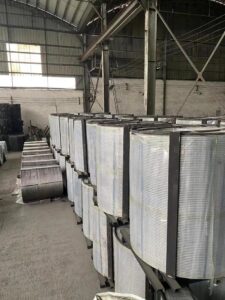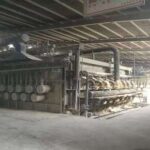There are many types of cored wires. When calcium-silicon powder is rolled into a cored wire, it is called a calcium-silicon cored wire, also known as a calcium-silicon wire. It serves as an additive in steel production, beneficial for adjusting and controlling the content of easily oxidizable elements and trace elements. It can significantly improve alloy yield, reduce smelting costs, shorten the smelting process, and enable precise control of time and composition.

In practice, multiple additives are introduced during molten steel processing, each with different functions. The calcium-silicon wire is a commonly used additive in steelmaking, and the sequence and method of its addition differ from other additives. Only by adding it in the correct order can the role of the calcium-silicon wire be fully utilized.
When treating molten steel with calcium-silicon cored wire, the reaction is more intense compared to ordinary calcium-silicon wire, so special attention must be paid to the calcium treatment process, such as immersion depth and feeding speed. During feeding, the calcium vapor pressure in the calcium-silicon wire is very high. To prevent calcium evaporation, the wire must be fed deep into the molten steel. One method is to increase the thickness of the iron sheath to prevent premature melting, which could affect the calcium release depth. Another method is to increase the feeding speed to enhance the depth of calcium release. A higher feeding speed allows the wire to penetrate the slag layer and reach a certain depth, reducing slag oxidation of calcium, improving calcium absorption by the molten steel, and increasing calcium recovery rate.
The feeding speed and rhythm are key parameters in the calcium-silicon cored wire feeding process. If the speed or rhythm is too fast or too slow, it will affect the melting time and oxidation degree of the wire. Operators must closely monitor the condition of the molten steel. If the molten steel begins to churn violently, feeding should be paused briefly before resuming to avoid splashing.






